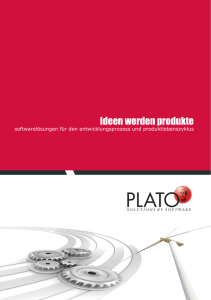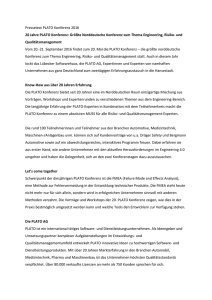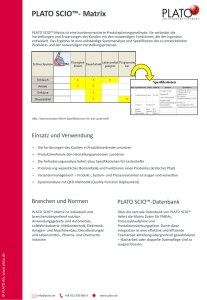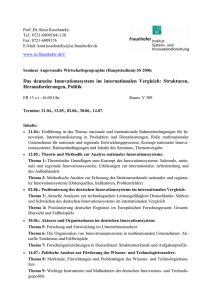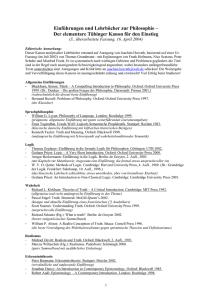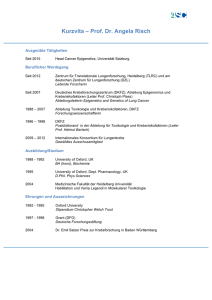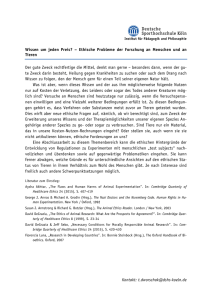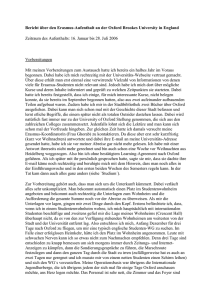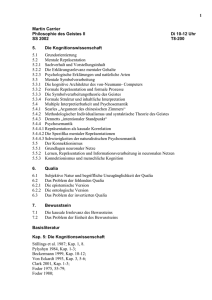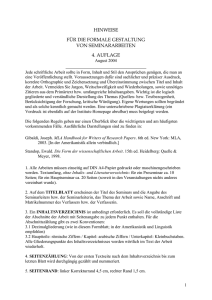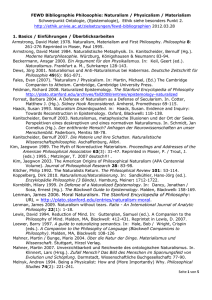Proceedings of the Second Symposium Platonicum Pragense, (ed. )
Werbung
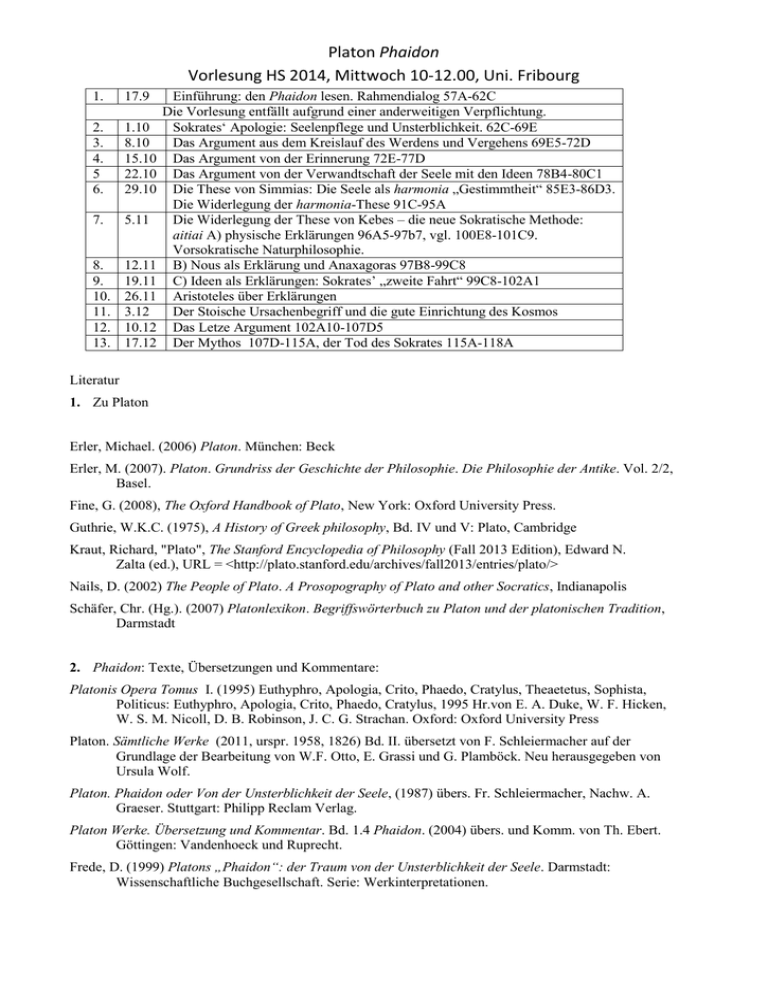
Platon Phaidon Vorlesung HS 2014, Mittwoch 10-12.00, Uni. Fribourg 1. 17.9 2. 3. 4. 5 6. 1.10 8.10 15.10 22.10 29.10 7. 5.11 8. 9. 10. 11. 12. 13. 12.11 19.11 26.11 3.12 10.12 17.12 Einführung: den Phaidon lesen. Rahmendialog 57A-62C Die Vorlesung entfällt aufgrund einer anderweitigen Verpflichtung. Sokrates‘ Apologie: Seelenpflege und Unsterblichkeit. 62C-69E Das Argument aus dem Kreislauf des Werdens und Vergehens 69E5-72D Das Argument von der Erinnerung 72E-77D Das Argument von der Verwandtschaft der Seele mit den Ideen 78B4-80C1 Die These von Simmias: Die Seele als harmonia „Gestimmtheit“ 85E3-86D3. Die Widerlegung der harmonia-These 91C-95A Die Widerlegung der These von Kebes – die neue Sokratische Methode: aitiai A) physische Erklärungen 96A5-97b7, vgl. 100E8-101C9. Vorsokratische Naturphilosophie. B) Nous als Erklärung und Anaxagoras 97B8-99C8 C) Ideen als Erklärungen: Sokrates’ „zweite Fahrt“ 99C8-102A1 Aristoteles über Erklärungen Der Stoische Ursachenbegriff und die gute Einrichtung des Kosmos Das Letze Argument 102A10-107D5 Der Mythos 107D-115A, der Tod des Sokrates 115A-118A Literatur 1. Zu Platon Erler, Michael. (2006) Platon. München: Beck Erler, M. (2007). Platon. Grundriss der Geschichte der Philosophie. Die Philosophie der Antike. Vol. 2/2, Basel. Fine, G. (2008), The Oxford Handbook of Plato, New York: Oxford University Press. Guthrie, W.K.C. (1975), A History of Greek philosophy, Bd. IV und V: Plato, Cambridge Kraut, Richard, "Plato", The Stanford Encyclopedia of Philosophy (Fall 2013 Edition), Edward N. Zalta (ed.), URL = <http://plato.stanford.edu/archives/fall2013/entries/plato/> Nails, D. (2002) The People of Plato. A Prosopography of Plato and other Socratics, Indianapolis Schäfer, Chr. (Hg.). (2007) Platonlexikon. Begriffswörterbuch zu Platon und der platonischen Tradition, Darmstadt 2. Phaidon: Texte, Übersetzungen und Kommentare: Platonis Opera Tomus I. (1995) Euthyphro, Apologia, Crito, Phaedo, Cratylus, Theaetetus, Sophista, Politicus: Euthyphro, Apologia, Crito, Phaedo, Cratylus, 1995 Hr.von E. A. Duke, W. F. Hicken, W. S. M. Nicoll, D. B. Robinson, J. C. G. Strachan. Oxford: Oxford University Press Platon. Sämtliche Werke (2011, urspr. 1958, 1826) Bd. II. übersetzt von F. Schleiermacher auf der Grundlage der Bearbeitung von W.F. Otto, E. Grassi und G. Plamböck. Neu herausgegeben von Ursula Wolf. Platon. Phaidon oder Von der Unsterblichkeit der Seele, (1987) übers. Fr. Schleiermacher, Nachw. A. Graeser. Stuttgart: Philipp Reclam Verlag. Platon Werke. Übersetzung und Kommentar. Bd. 1.4 Phaidon. (2004) übers. und Komm. von Th. Ebert. Göttingen: Vandenhoeck und Ruprecht. Frede, D. (1999) Platons „Phaidon“: der Traum von der Unsterblichkeit der Seele. Darmstadt: Wissenschaftliche Buchgesellschaft. Serie: Werkinterpretationen. Platon Phaidon Vorlesung HS 2014, Mittwoch 10-12.00, Uni. Fribourg Plato. Phaedo. (1975) Translated with Notes by David Gallop. Oxford: Clarendon Press. Plato’s Phaedo. (1986) David Bostock, Oxford: Oxford University Press. Plato Phaedo. Ed. by C.J.Rowe. (1993) Cambridge Greek and Latin Classics. Cambridge: Cambridge University Press. Plato. Meno and Phaedo. (2010) Ed. by David Sedley, Trans. by Alex Long. Cambridge Texts in the History of Philosophy. Cambridge: Cambridge University Press. 3. Sekundärliteratur zu besonderen Themen im Dialog Ackrill J. L. (1973), ‘Anamnesis in the „Phaedo”: remarks on 73c-75c.’ in Exegesis and argument: Studies in Greek Philosophy presented to G. Vlastos, ed. by E.N. Lee, A.P. Mourelatos, R. Rorty. Assen: Van Gorkum Apolloni D. (1996), ‘Plato’s Affinity Argument for the Immortality of the Soul’, Journal of the History of Philosophy, vol. 34 (1), 5-32. Bedu-Addo J.T. (1979), ‘The Role of the Hypothetical Method in the Phaedo’ in Phronesis vol. 24, pp. 111-132 (ibid.) (1991), ‘Sense-experience and the argument for recollection in Plato’s Phaedo’ in Phronesis vol. 36, pp. 27-60. Betegh G. (2009), ‘Tale, Theology and Teleology in the Phaedo’ in Plato’s Myths, ed. by C. Partenie, Cambridge: Cambridge University Press, pp. 77-100. Boys-Stones, G. (2004) Phaedo of Elis and Plato on the Soul. Phronesis, 49, 1 – 23. Broadie, S. (2001), Soul and Body in Plato and Descartes. Proceedings of the Aristotelian Society, New Series, Vol. 101 pp. 295-308 Burnyeat, M. F. (1997). The Impiety of Socrates. Ancient Philosophy 17 (1):1-12. Bolton R. (1997), ‘Plato’s Discovery of Metaphysics: the new methods of the Phaedo’ in J. Gentzler (ed.), Method in Ancient Philosophy, Oxford: Oxford University Press, pp. 91-111. Denyer N. (2007), ‘The Phaedo’s Final Argument’ in Maieusis. Essays in Ancient Philosophy in Honour of Myles Burnyeat. Ed. by D. Scott, Oxford: Oxford University Press, pp. 87-97. Dimas P. (2003), ‘Recollecting Forms in the Phaedo’, in Oxford Studies in Ancient Philosophy, vol. 48, pp. 175-214. Greco A. (1996), ‘Plato’s cyclical argument for the immortality of the soul’ in Archiv für Geschichte der Philosophie vol. 78.3, pp. 225-252. Ebert T. (2001), “Das Argument aus dem Wiedergeborenwerden: 69e-72e” in Plato’s Phaedo: Proceedings of the Second Symposium Platonicum Pragense, (ed. ) A. Havlicek and F. Karfik, Praha: Oikoumene, pp. 208-40. Ibid. (2002), “Wenn ich einen schönen Mythos vortragen darf…”. Zu Status, Herkunft und Funktion des Schlussmythos in Platons Phaidon.’, in M. Janka und C. Schaefer (edd.), Platon als Mythologe. Neue Interpretationen zu den Mythen in Platons Dialogen, Darmstadt, pp. 251-69 Ebrey, D. (2014), Making Room for Matter: Material Causes in the Phaedo and the Physics. Apeiron, 47, 245–265. Elton M. (1997), “The role of the affinity argument in the Phaedo” in Phronesis vol. 42.3, pp. 313-16. Falcon, Andrea, "Aristotle on Causality", The Stanford Encyclopedia of Philosophy (Spring 2014 Edition), Edward N. Zalta (ed.), URL = <http://plato.stanford.edu/archives/spr2014/entries/aristotlecausality/>. Platon Phaidon Vorlesung HS 2014, Mittwoch 10-12.00, Uni. Fribourg Franklin L. (2005), “Recollection and Philosophical Reflection in Plato’s Phaedo” in Phronesis vol. 50.4 pp. 289-314. Frede D. (2001), “The Final Proof of the Immortality of the Soul in Plato’s Phaedo” in E.M.Wagner (ed.), Essays on Plato’s Psychology, Lanham: Lexington Books, pp. 282-296 Ibid. (2001), “Not in the Book: How does Recollection work?” in Plato’s Phaedo: Proceedings of the Second Symposium Platonicum Pragense, (ed.) A. Havlicek and F. Karfik, Praha: Oikoumene, pp. 241-265 Frede, M., (1980) “The Original Notion of Cause,” in J. Barnes, M. F. Burnyeat, M. Schofield (eds.),Doubt and Dogmatism: Studies in Hellenistic Epistemology, Oxford: Oxford University Press, pp. 217–249; reprinted in M. Frede, Essays in Ancient Philosophy, Oxford: Oxford University Press, 1989. Frede, M. (1992) Plato's Arguments and the Dialogue Form: Oxford Studies in Ancient Philosophy Suppl. (Methods & co ed. J.C. Klagge and N.D.Smith) Oxford 1992, 201-219 Hadot, P. (1997) Philosophie als Lebensform. Antike und moderne Exerzitien der Weisheit (übers. Von I. Hadot) GATZA : Berlin Hankinson, J. R., (1998) Cause and Explanation in Ancient Greek Thought, Oxford: Oxford University Press. Hartman E. (1972), “Predication and Immortality in Plato’s Phaedo” in Archiv für Geschichte der Philosophie vol. 54, pp. 215-28. Havlicek, A., F. Karfík (2001) Phaedo. Proceedings of the Second Symposium Platonicum Pragense. Praha: Oikoumene Kanayama, Y. (2000), “The Methodology of the Second Voyage and the proof of the soul’s indestructibility in Plato’s Phaedo” in Oxford Studies in Ancient Philosophy vol. 18, pp. 41-100. Karfík, F. (2004) Die Beseelung des Kosmos: Untersuchungen Zur Kosmologie, Seelenlehre Und Theologie in Platons Phaidon Und Timaios, Saur. Kelsey S. (2000), “Recollection in the Phaedo”, in Boston Area Colloquium in Ancient Philosophy vol. 16, pp. 91-133. Menn, S. (2010), “On Socrates’ first Objections to the Physicists” in Oxford Studies in Ancient Philosophy, vol. 38, pp. 37-68 [Analyse des Abschnittes 96c3-97b3] Pakaluk, M. (2003), ‘Degrees of Separation in the Phaedo’, Phronesis 48, pp. 89-115. Penner, T. (2005), Socratic Ethics: Ultra-Realism, Determinism, and Ethical Truth, in: Gill, C. (ed.): Virtue, Norms, and Objectivity. Issues in Ancient and Modern Ethics, Oxford: 157–187 Penner, T. (2006), Plato’s Ethics: Early and Middle Dialogues, in: Gill, M. L. / Pellegrin, P. (eds.): A Companion to Ancient Philosophy, Malden / Oxford: 151–169. Politis, V. (2010) Explanation and Essence in Plato's Phaedo. In: CHARLES, D. (ed.) Definition in Greek Philosophy. Oxford University Press. Rowe, Christopher J. (2001) “The Concept of Philosophy (Philosophia) in Plato's Phaedo.” In Havlíček and Karfik, her. Symposium Platonicum Pragense 2 2001 Plato's Phaedo, 34–47 Sedley, D. (1998), ‘Platonic Causes’ in Phronesis 43.2, pp. 114-32. Ibid. (2007), ‘Equal Sticks and Stones’ in Maieusis. Essays in Ancient Philosophy in Honour of Myles Burnyeat. Ed. by D. Scott, Oxford: Oxford University Press, pp. 68-87. Shields, C. (2007), “Explaining Nature and Nature of Explanation”, in C. Shields, Aristotle, London/New York: Routledge, pp. 36–97. Stemmer, P. (1992) Platons Dialektik. Die frühen und mittleren Dialoge, Berlin / New York. Platon Phaidon Vorlesung HS 2014, Mittwoch 10-12.00, Uni. Fribourg Stemmer, P. (1998), Tugend. Antike, in: Historisches Wörterbuch der Philosophie, Basel 10: 1532–1548. Turnbull, Robert G. (1958) “Aristotle's debt to the ‘natural philosophy’ of the Phaedo,”Philosophical Quarterly, 8: 131–43. Vlastos G. (1971), “Reasons and Causes in the Phaedo” Vlastos G. (ed.), Plato. A Collection of Critical Essays. New York, Bd. 1, pp. 132-66. Warren, J. (2006) Psychic disharmony: Philoponus and Epicurus on Plato's Phaedo. Oxford Studies in Ancient Philosophy, 30, 235-259. 4. Zu Olympiodorus Gertz, S. R. P. (2011). Death and Immortality in Late Neoplatonism: Studies on the Ancient Commentaries on Plato's Phaedo, Brill Opsomer, J. (2010) Olympiodorus, in The Cambridge History of Philosophy in Late Antiquity, vol. 2, ed. by Lloyd P. Gerson, Cambridge University Press 697-710. Gerson, L. ed. (2010) The Cambridge History of Philosophy in Late Antiquity (2 vols).Cambridge: Cambridge University Press. Saffrey, H. D. (2005) “Olympiodore d'Alexandrie”. In R. Goulet (ed.), Dictionnaire des philosophes antiques IV. Paris, C.N.R.S., pp. 769–771. Westerink, L. G. (1976) The Greek Commentators on Plato's Phaedo, vol. I: Olympiodorus.Amsterdam: North-Holland Publishing Company. Wildberg, Christian, "Olympiodorus", The Stanford Encyclopedia of Philosophy (Fall 2008 Edition), Edward N. Zalta (ed.), URL = <http://plato.stanford.edu/archives/fall2008/entries/olympiodorus/>.
